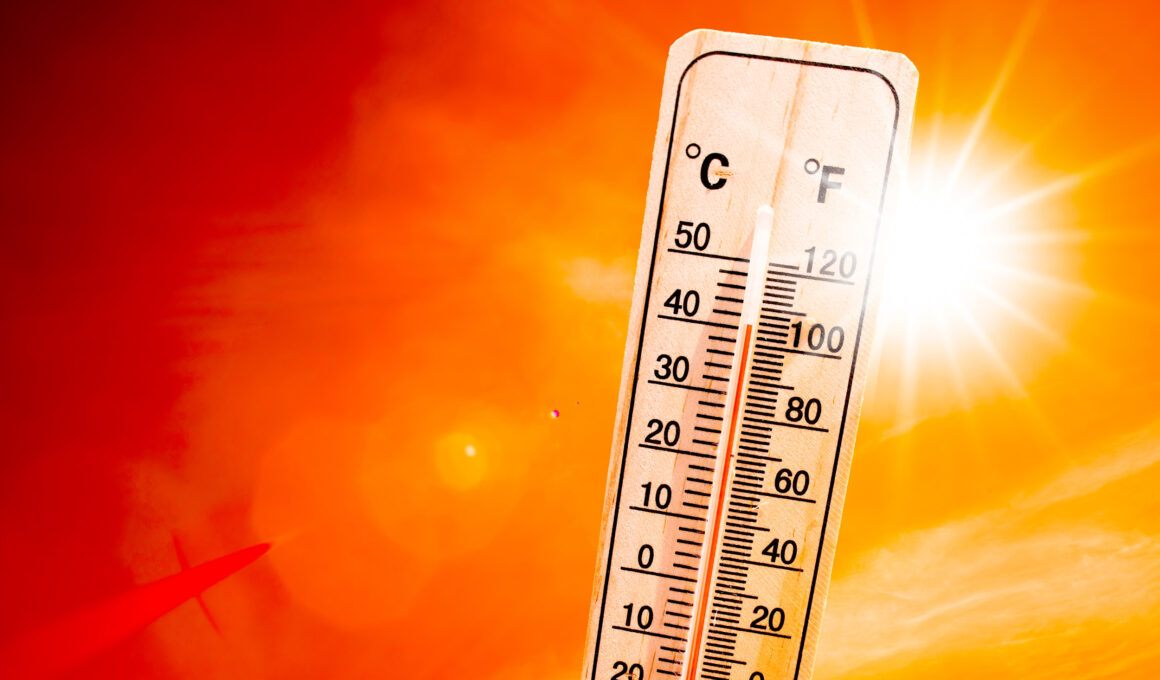The air temperature on planet Earth has repeatedly broken records this week, making the three days from Sunday to Wednesday the warmest on record.
The European Union‘s Copernicus Climate Change Service (C3S), which uses satellites to monitor global climate developments, first announced that Sunday’s temperature broke a record by 32 degrees Fahrenheit, setting a new highest average global daily temperature of 62.76, the highest since records began in 1940.
However, Monday was even warmer, with an average global air temperature of 62.9 degrees Fahrenheit, breaking the record for a second day in a row.
On Tuesday, although the temperature did not surpass Monday’s record, it still ranked second in recent history with an average temperature of 62.87 degrees Fahrenheit.
Carlo Buontempo, head of the Copernicus program’s climate service, said in a press release: “We are now in truly uncharted territory and as the climate keeps warming, we are bound to see new records being broken in future months and years.”
According to Buontempo, the past year has drawn significant attention to the issue of climate change.
“What’s really stunning is the magnitude of the temperature difference of the last 13 months compared to previous records,” he noted, although he added that it’s long-term observations that are crucial to climatology, rather than short-term fluctuations.
“There was a spell of record-breaking temperatures also last year. But what is especially striking, and alarming, is that whereas last year there was a boost from El Niño, this year we do not have that, and yet are still seeing the records,” Clare Nullis, a spokesperson from World Meteorological Organization told Newsweek.
According to C3S, the global average temperature typically peaks between late June and early August, coinciding with the height of summer in the Northern Hemisphere.
Their analysis suggests that the recent sharp increase in daily global average temperatures this month is linked to significantly above-average temperatures over Antarctica, an area that has been continuously breaking records for low ice extent since last year.
“While this is certainly a noteworthy milestone that was recently reached with global temperatures, we have to be careful not to read too much into this one daily occurrence,” Dave Dombek, a senior meteorologist from AccuWeather, told Newsweek. “It does seem like the biggest temperature anomaly that showed up with temperatures was in Antarctica. If that extreme event did not happen there, then the global temperature record probably would not have been broken.”
High temperatures have been recorded in various parts of the U.S., particularly in the West, where various California cities have broken records with heat above 110 degrees. Nevada and Arizona also saw temperatures soar in July, leaving one in five Americans living in areas under weather warnings.
Do you have a story we should be covering? Do you have any questions about this article? Contact LiveNews@newsweek.com.
Uncommon Knowledge
Newsweek is committed to challenging conventional wisdom and finding connections in the search for common ground.
Newsweek is committed to challenging conventional wisdom and finding connections in the search for common ground.








